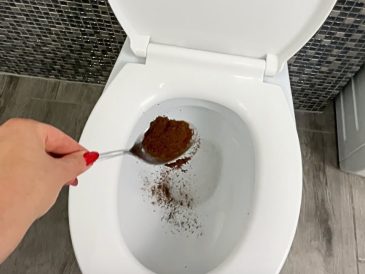As we get older, it’s natural to become more concerned about our health. Understanding early indicators of illnesses can be crucial in seeking timely medical advice. Colon cancer, which often affects individuals over the age of 50, is one such condition where early detection can make a big difference.
Understanding Your Body’s Signals
Recognizing the initial signs of colon cancer isn’t always easy since they can sometimes be mistaken for less serious ailments. It’s important to stay informed and proactive about what your body is telling you. Here are six key symptoms that might indicate the presence of colon cancer.
1. Persistent Changes in Bowel Habits
One of the earliest signs of colon cancer is a noticeable change in your bowel habits. This might include diarrhea, constipation, or a different stool consistency. These changes often persist for a few weeks and do not respond to usual remedies.
2. Blood in the Stool
Finding blood in your stool can be alarming and is a symptom that should never be ignored. While there are many potential causes for rectal bleeding, including hemorrhoids, blood in the stool is also a warning sign of colon cancer that requires immediate attention from a healthcare professional.

3. Unexplained Weight Loss
If you find you’re losing weight without actively trying to, it could be a sign something is amiss. Weight loss associated with colon cancer is typically unexpected and comes along with other digestive issues.
4. Persistent Abdominal Discomfort
Frequent cramps, gas, or consistent abdominal pain may be indicative of colon cancer. As our bodies age, it’s essential to pay attention to any ongoing pain or discomfort that cannot be immediately explained by diet or other common factors.
5. A Feeling That the Bowel Doesn’t Fully Empty
Experiencing a sensation that your bowel is not completely empty even after a bowel movement can be a subtle symptom of colon cancer. This discomfort might hint at a blockage developing within the colon.
6. Weakness or Fatigue
Many illnesses can cause fatigue, and while it might seem routine, ongoing tiredness can also be a sign of colon cancer. If you experience prolonged fatigue without an identifiable cause, be sure to discuss it with a doctor.
Being Proactive About Your Health
Getting routine screenings is one of the most effective ways to prevent and detect colon cancer early. For those over 50, it’s especially important to follow doctor’s recommendations regarding colonoscopies and other diagnostic tests. Early detection helps in managing and treating the disease more effectively.
It’s vital to consult with healthcare professionals if you notice any of the symptoms mentioned above. While these signs can be associated with various benign conditions, rule out any serious issues with professional diagnosis. Remember, it’s always better to be safe and get checked if you’re unsure.





